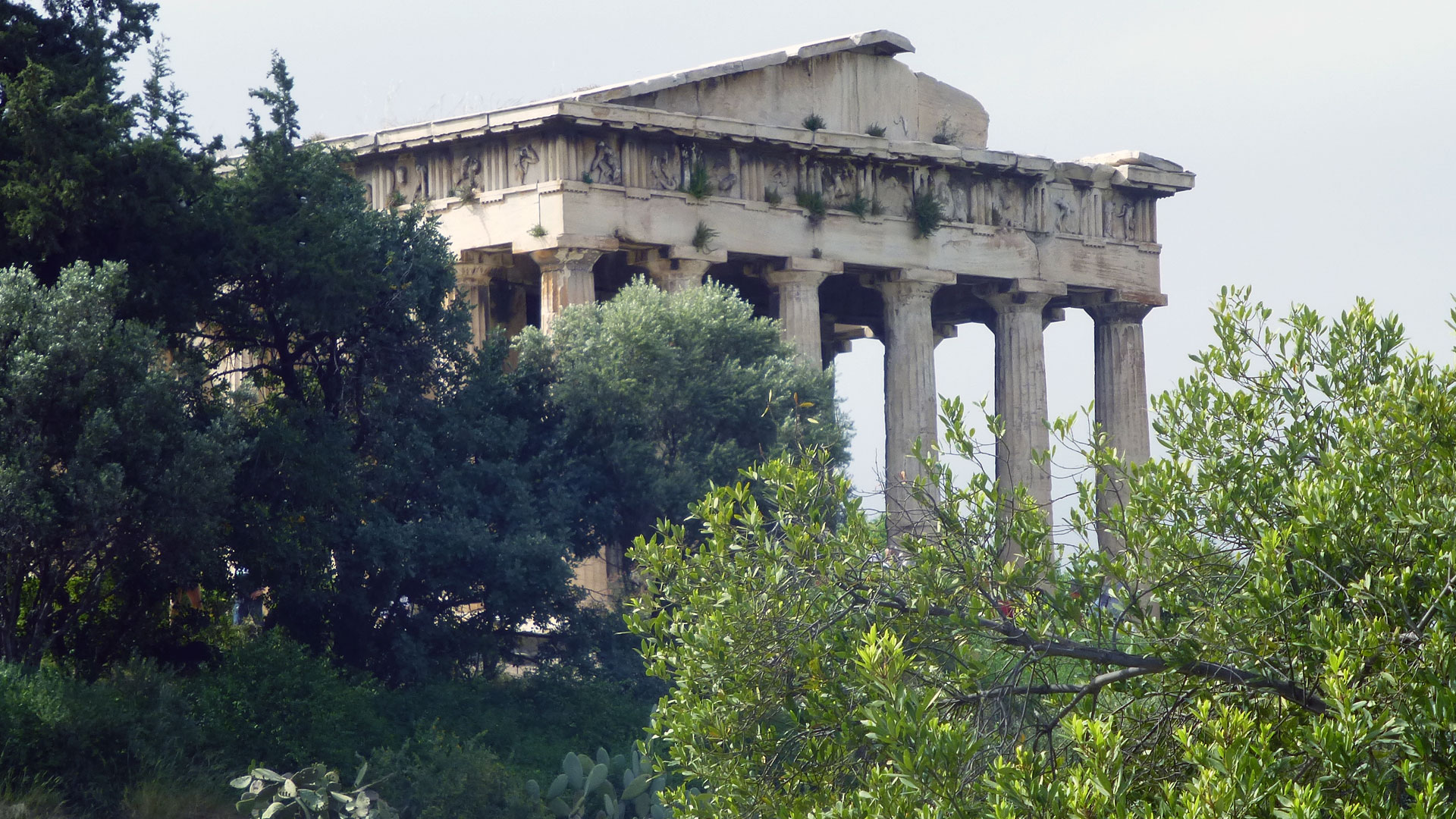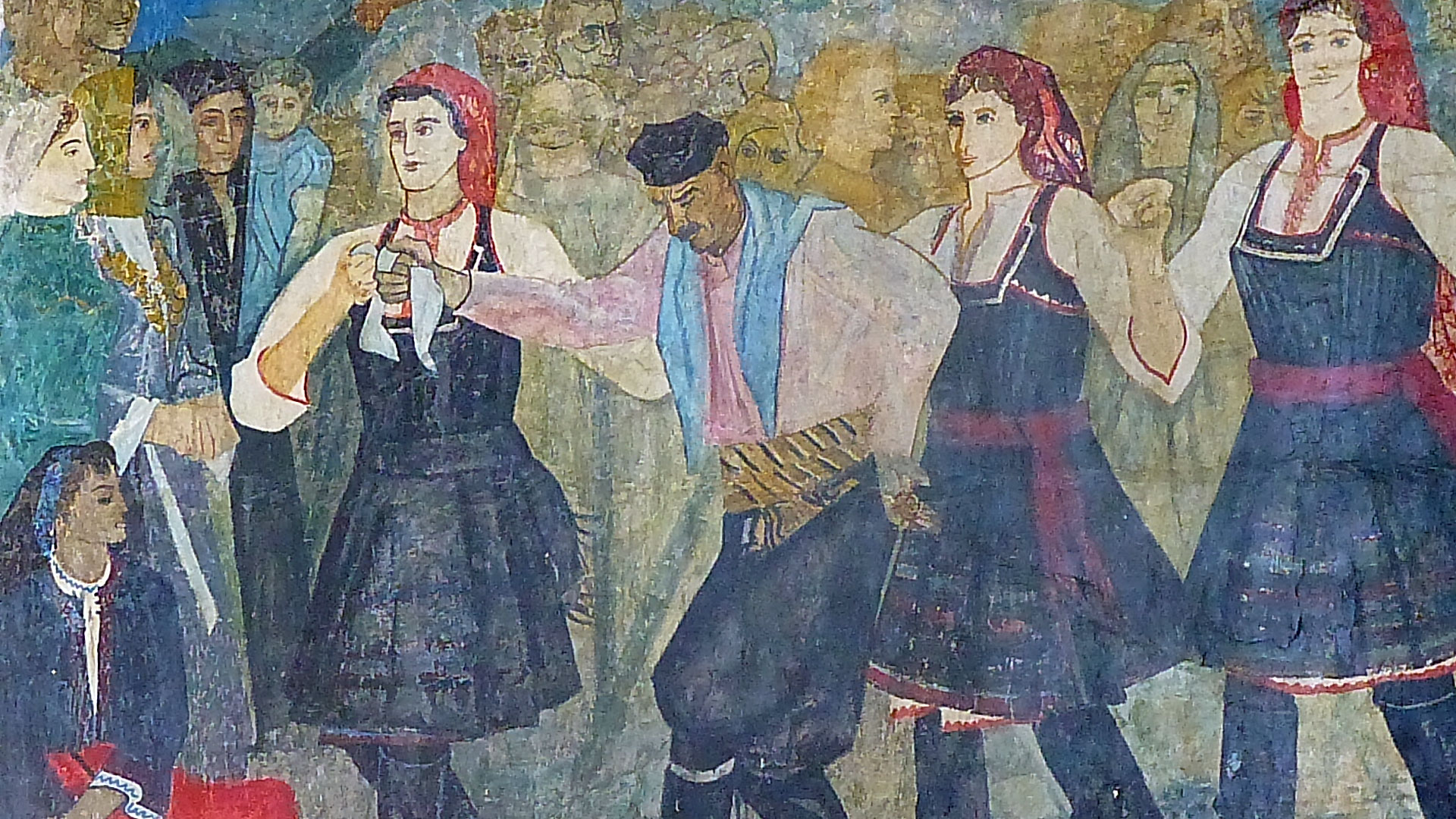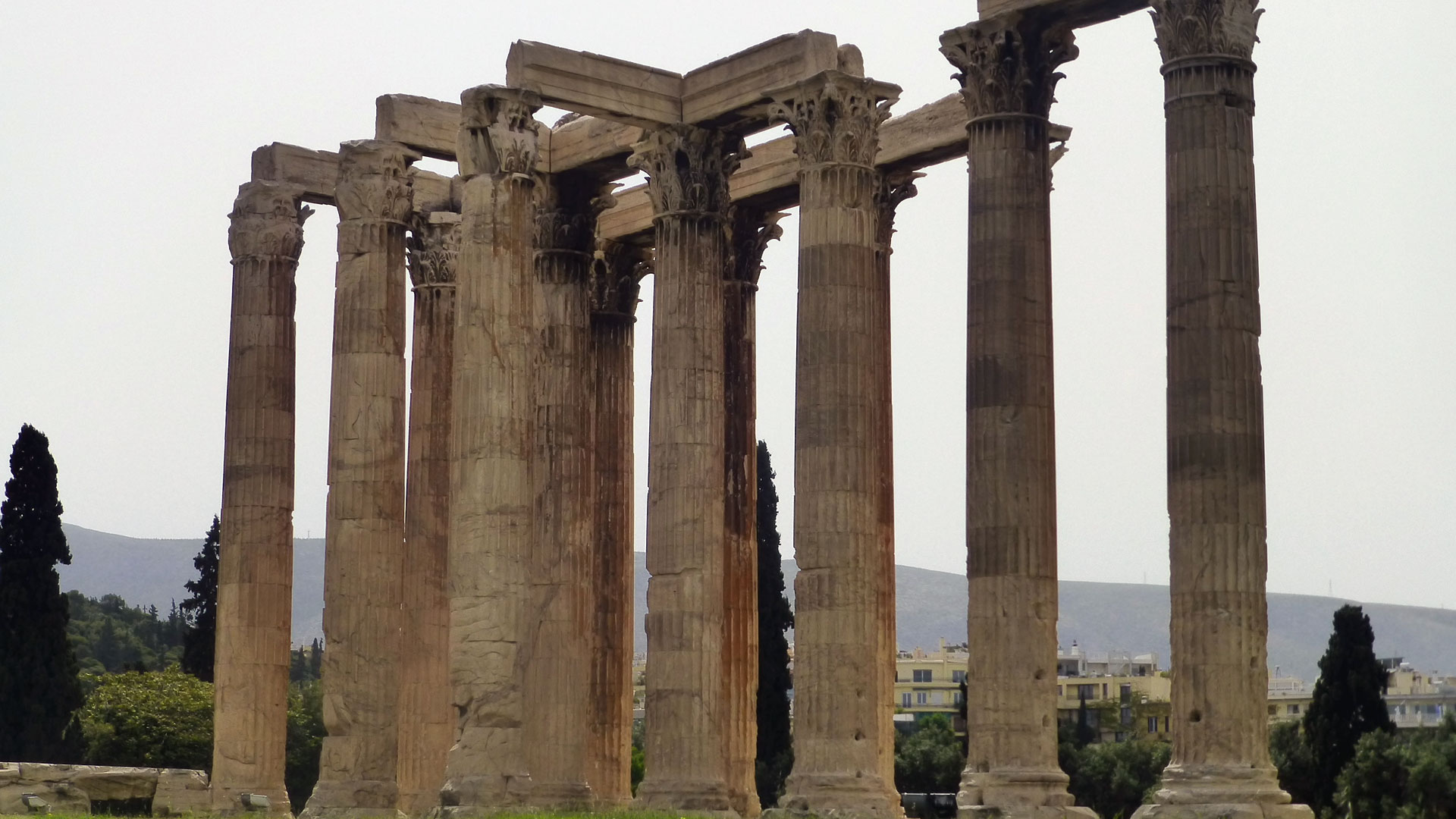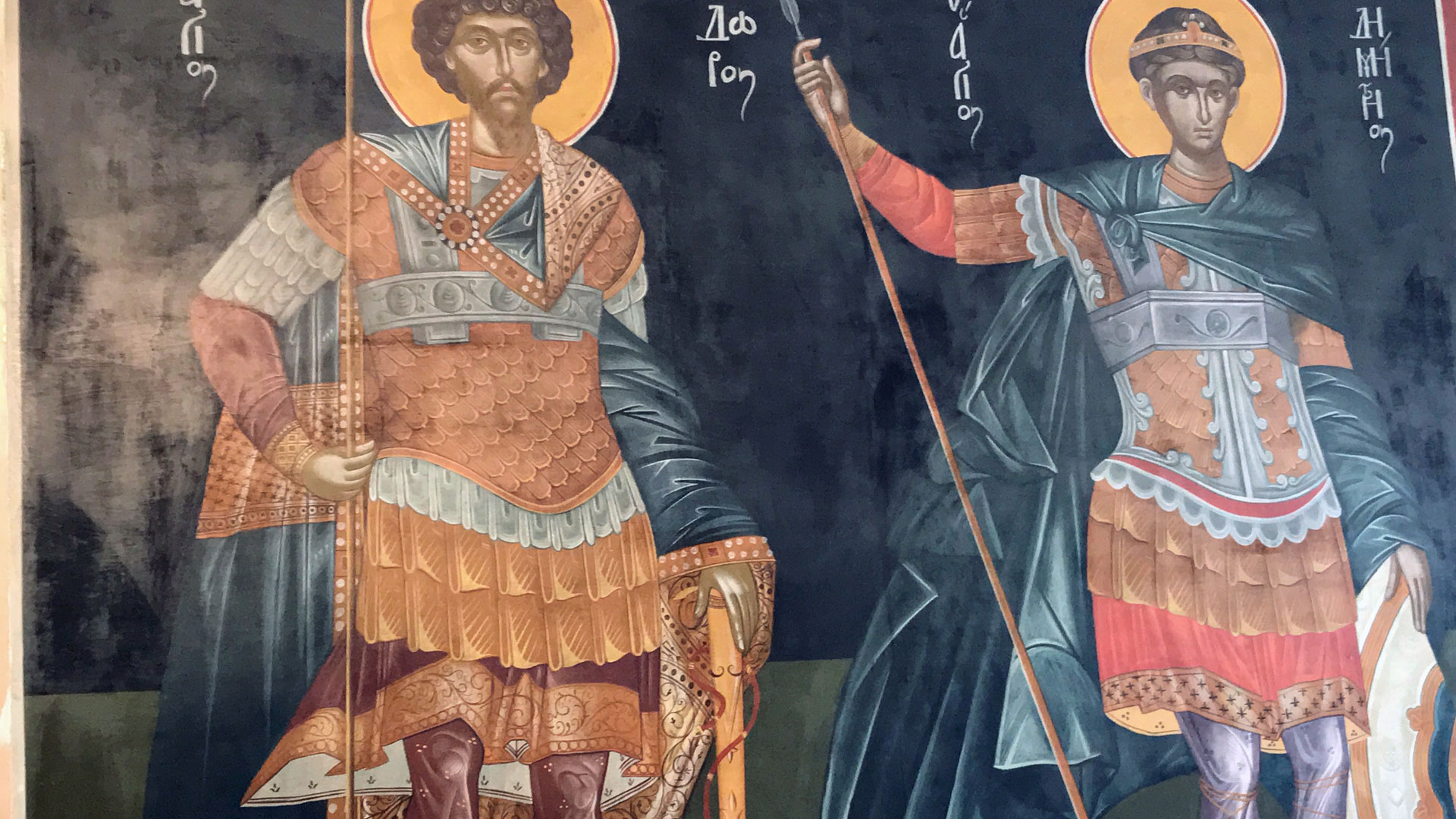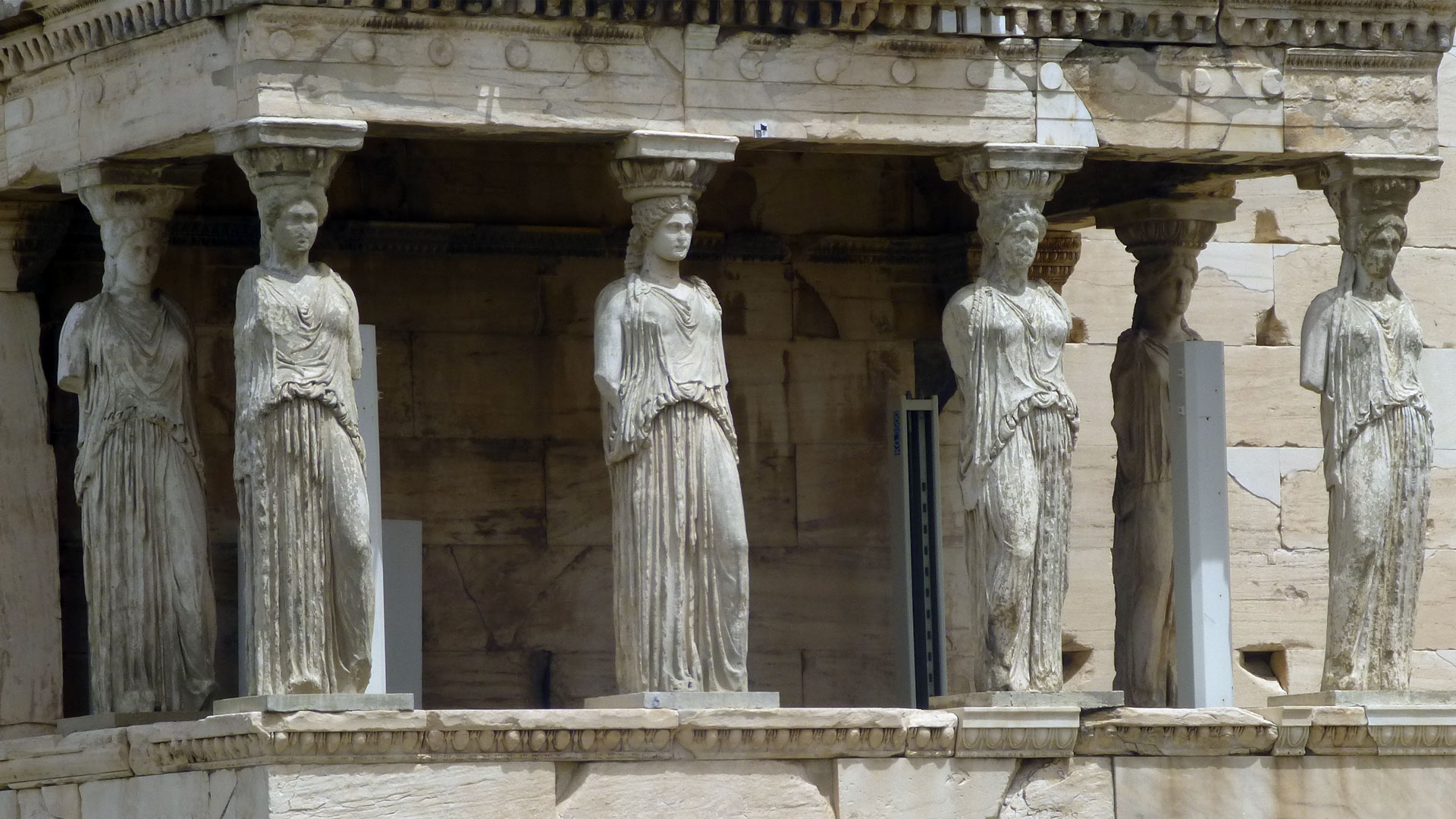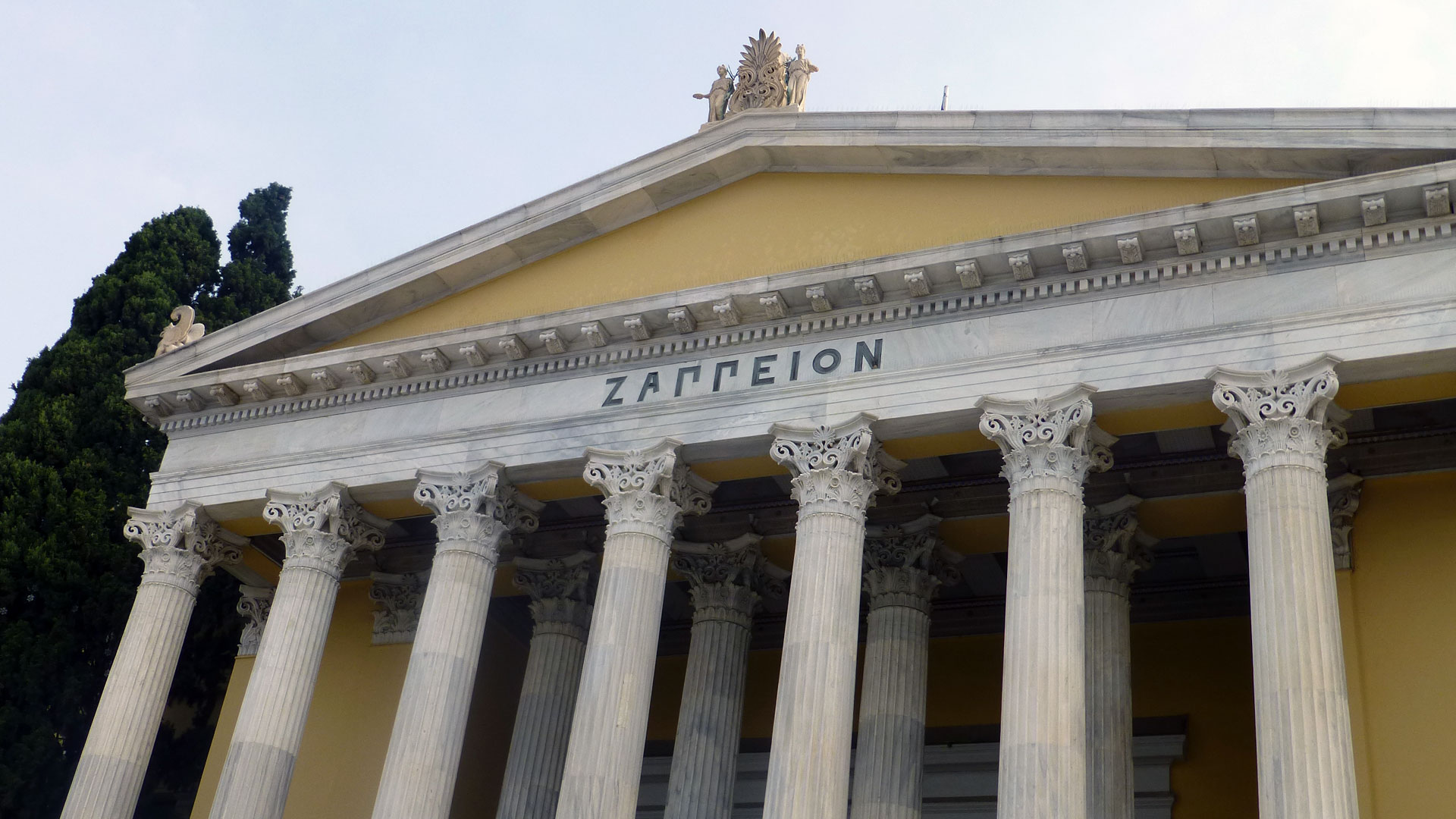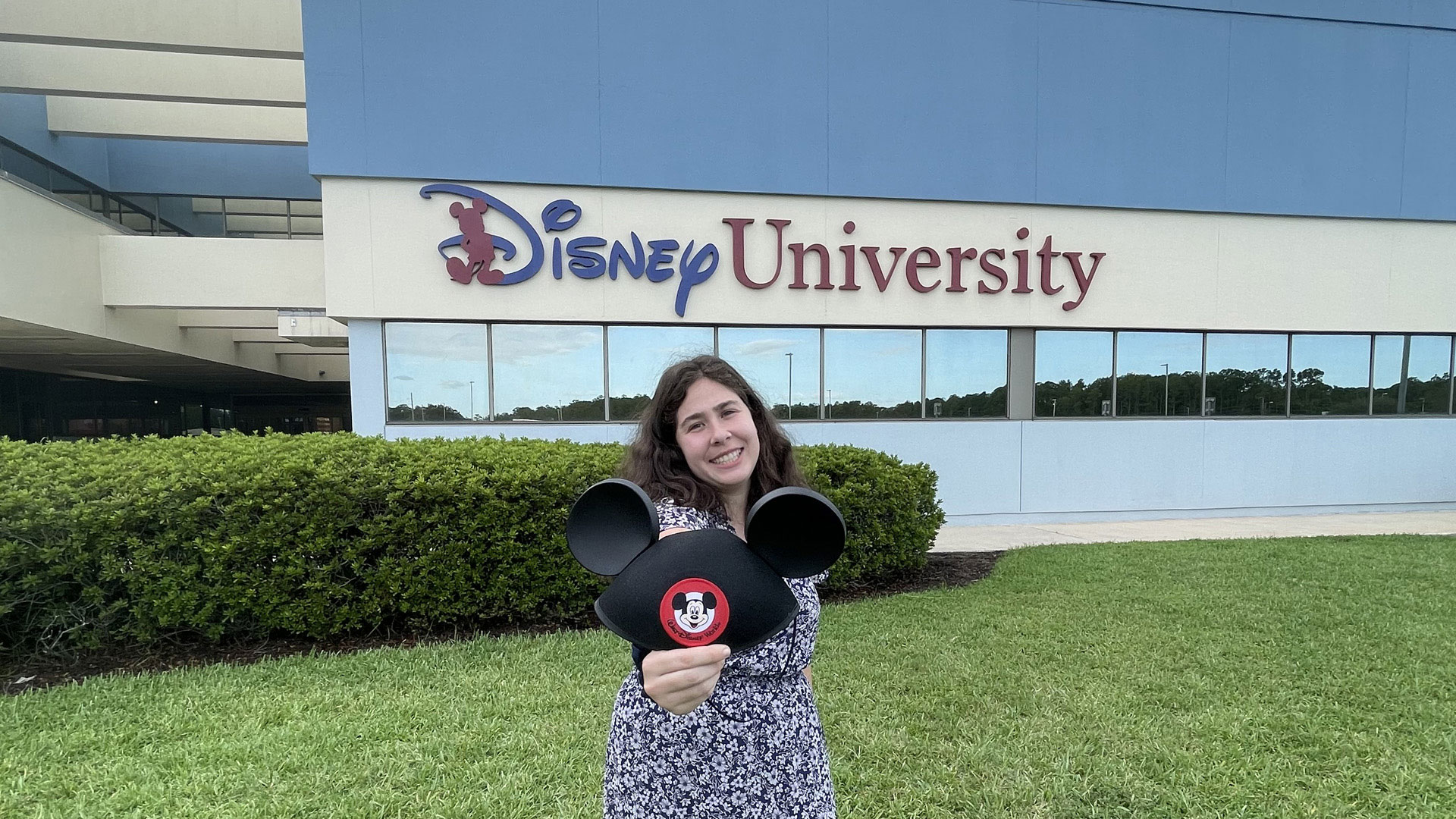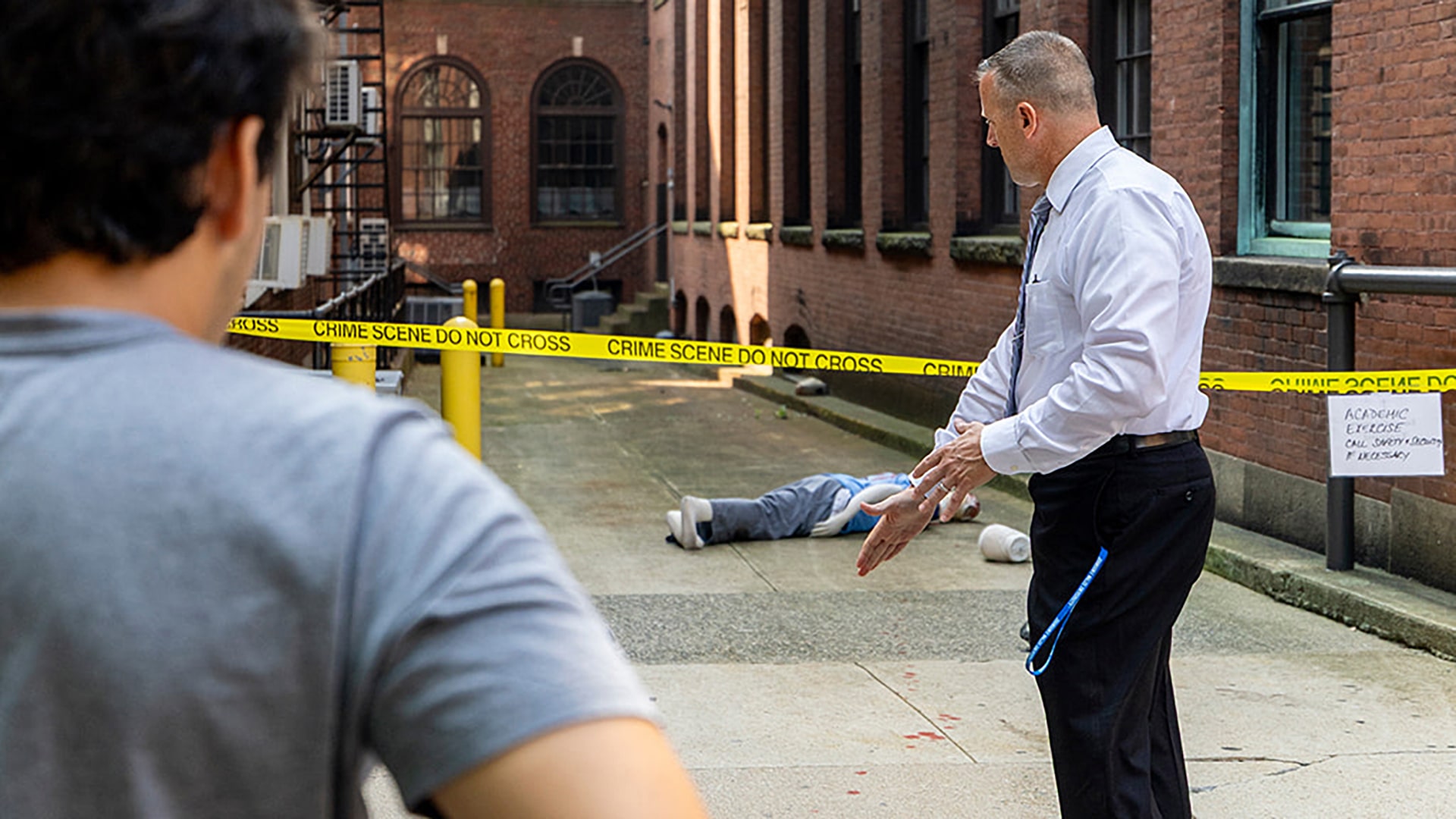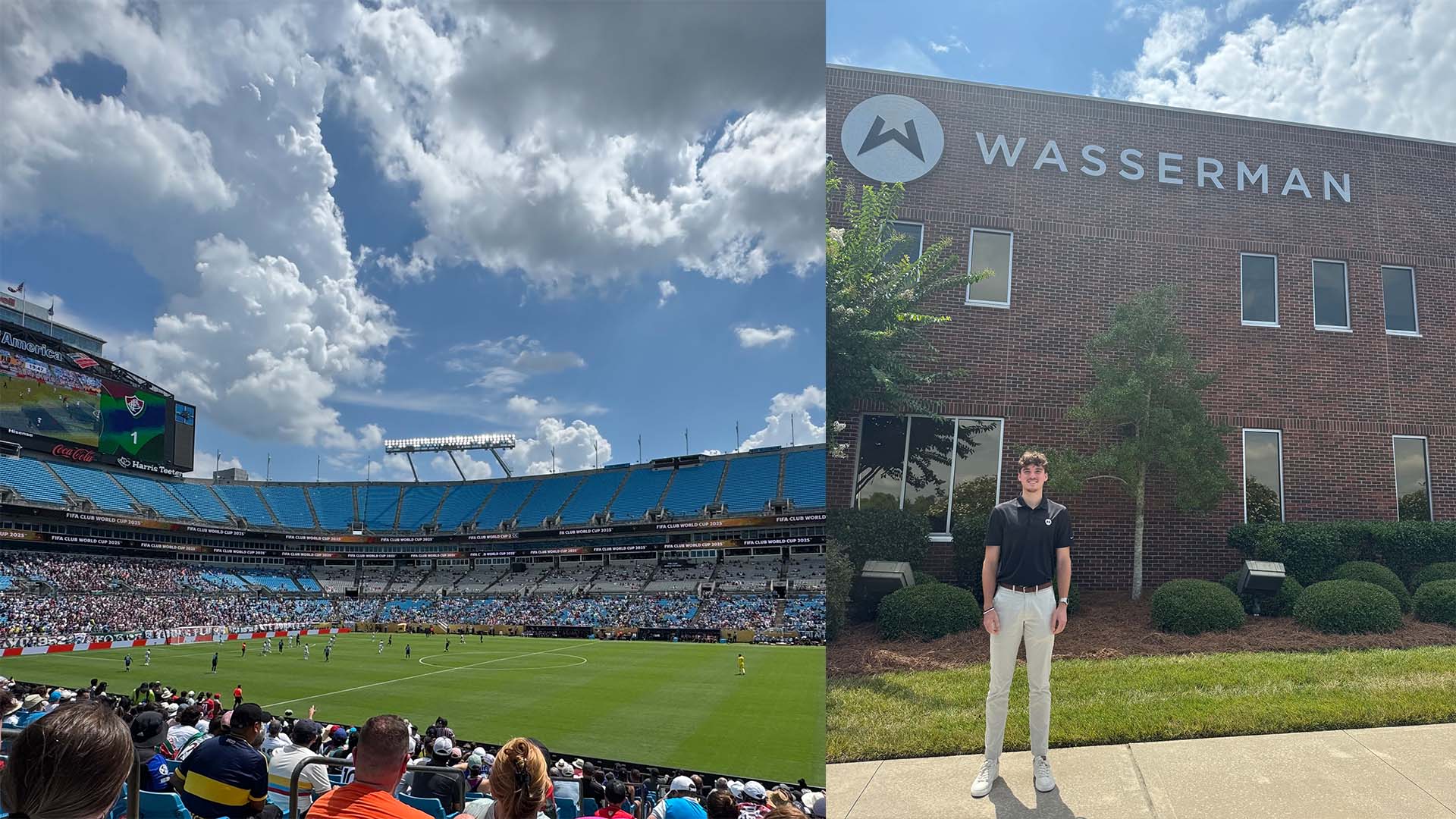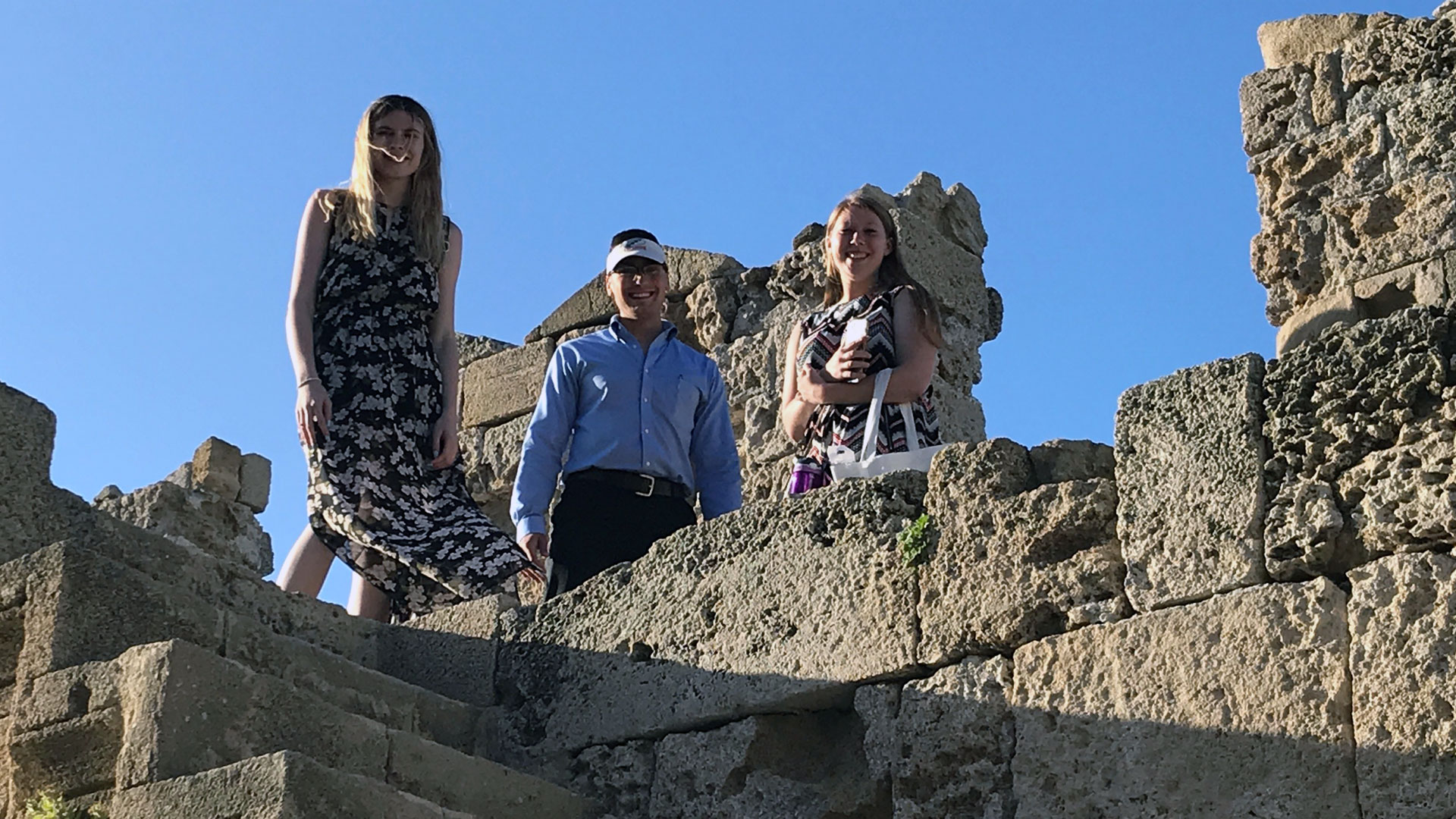
Imagine immersing yourself fully in another culture — to learn its history; explore its architecture, art, and beautifully preserved ruins; and even learn about your own chosen industry through its lens. A group of 27 JWU hospitality students recently did just that.
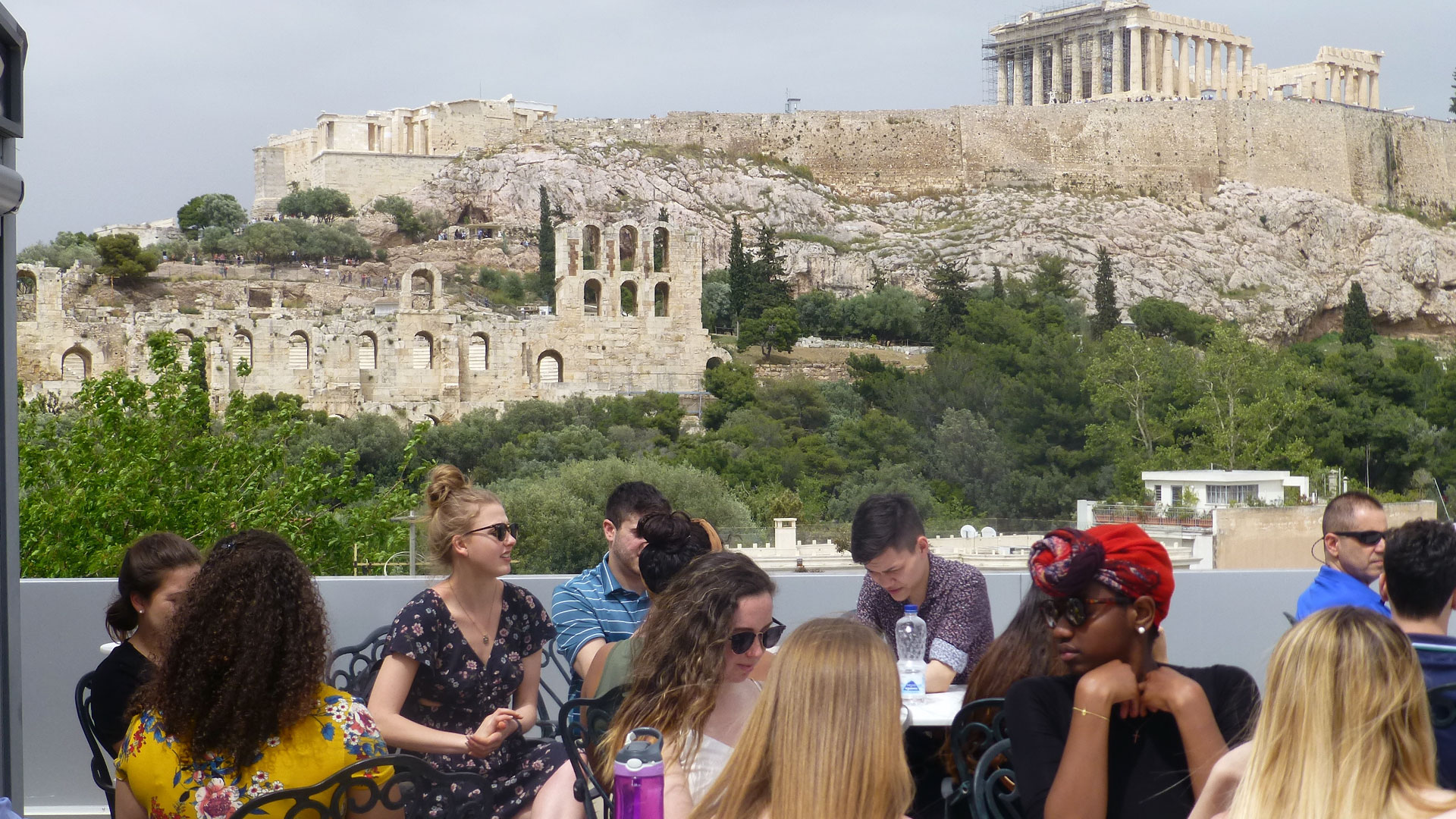
Greece is one of the world’s most visited countries. Widely considered the birthplace of Western civilization — you can thank the Greeks for the Olympics, to name one example. It’s home to 18 UNESCO World Heritage sites and has the 11th longest coastline in the world. The country’s temperate climate, natural beauty and historical importance contribute to its robust tourism economy, which accounts for more than 30 million visitors each year.
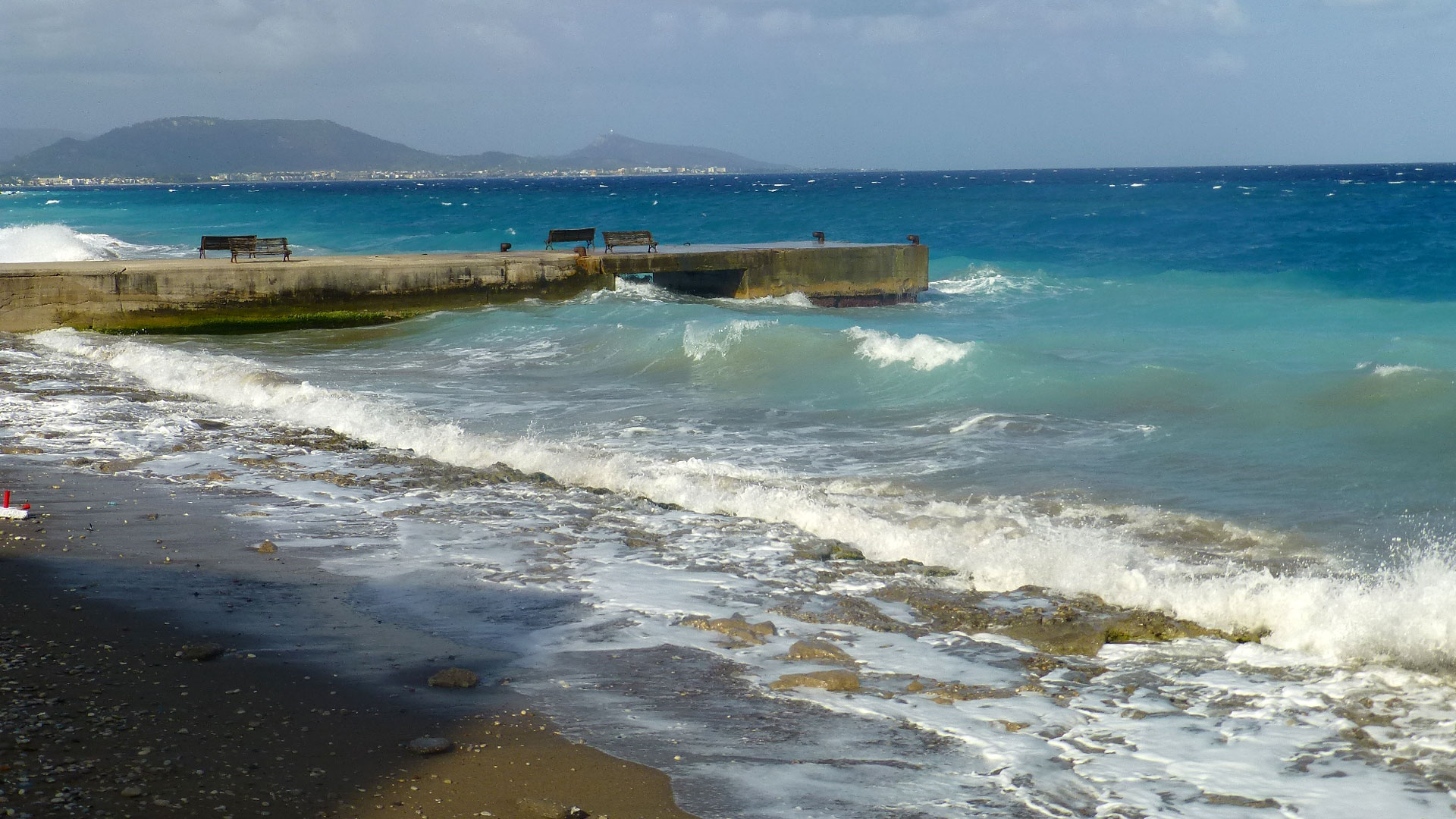
This backdrop served as the perfect location for Associate Professor Jane Boyland’s International Hotel Operations class for students majoring in Hotel & Lodging Management. The group split their week between the capital city of Athens and the historic island of Rhodes (or Ródos in Greek) to learn about international hospitality and tourism firsthand.
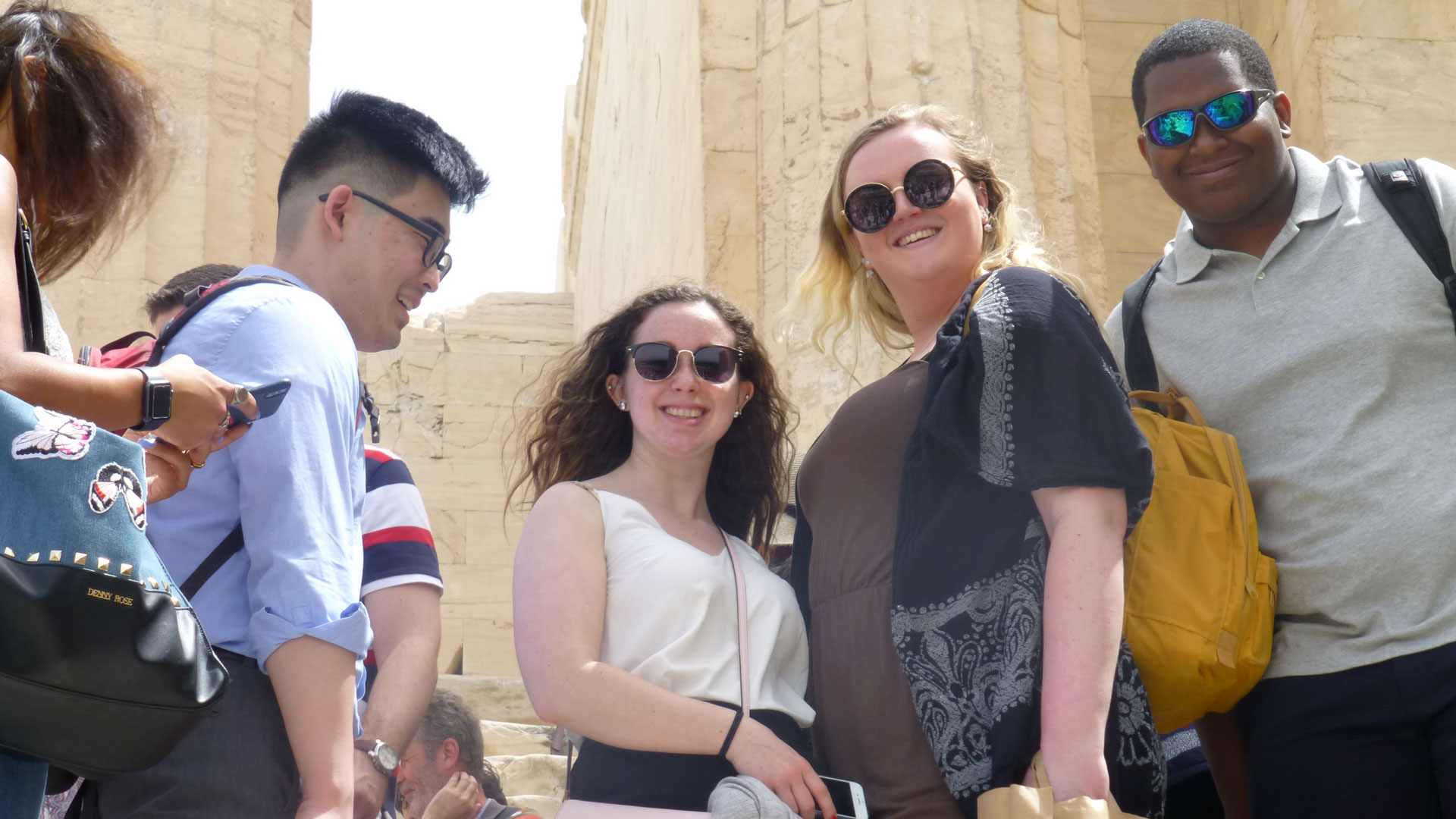
The class was diverse, with students from China, South Korea, Nicaragua, Spain, Puerto Rico and the U.S. For some, it was their first trip to Europe or outside the U.S. During the trip they got to know each other better, bond and make new friends.
In both Athens and Rhodes, they experienced the hotel and tourism industries through speakers, hotel tours, and Q and A’s with a network of professionals — hotel owners and managers, the Ródos Hoteliers Association and the Department of Tourism. They met with government officials including Vice Mayor for the City of Rhodes, Savvas Diakostamatiou, and the Rhodes Deputy Mayor of Tourism, Mariza Chatzilazarou, both of whom joined the group for dinner.
"One of the major focuses of the trip is how to be an expat, which is important for an international hotel management major."
Rick Warren ’19 gave his take on why the trip is so important. “It’s a once-in-a-lifetime experience for hotel and lodging management students.The hotel and lodging industry, both domestic and internationally, has had rapid expansion and is a large contributor to most country’s GDPs. To be able to learn business protocol and cultural and social norms is a great way to get a firsthand look at what we could do if we have international guests and what their needs are.”
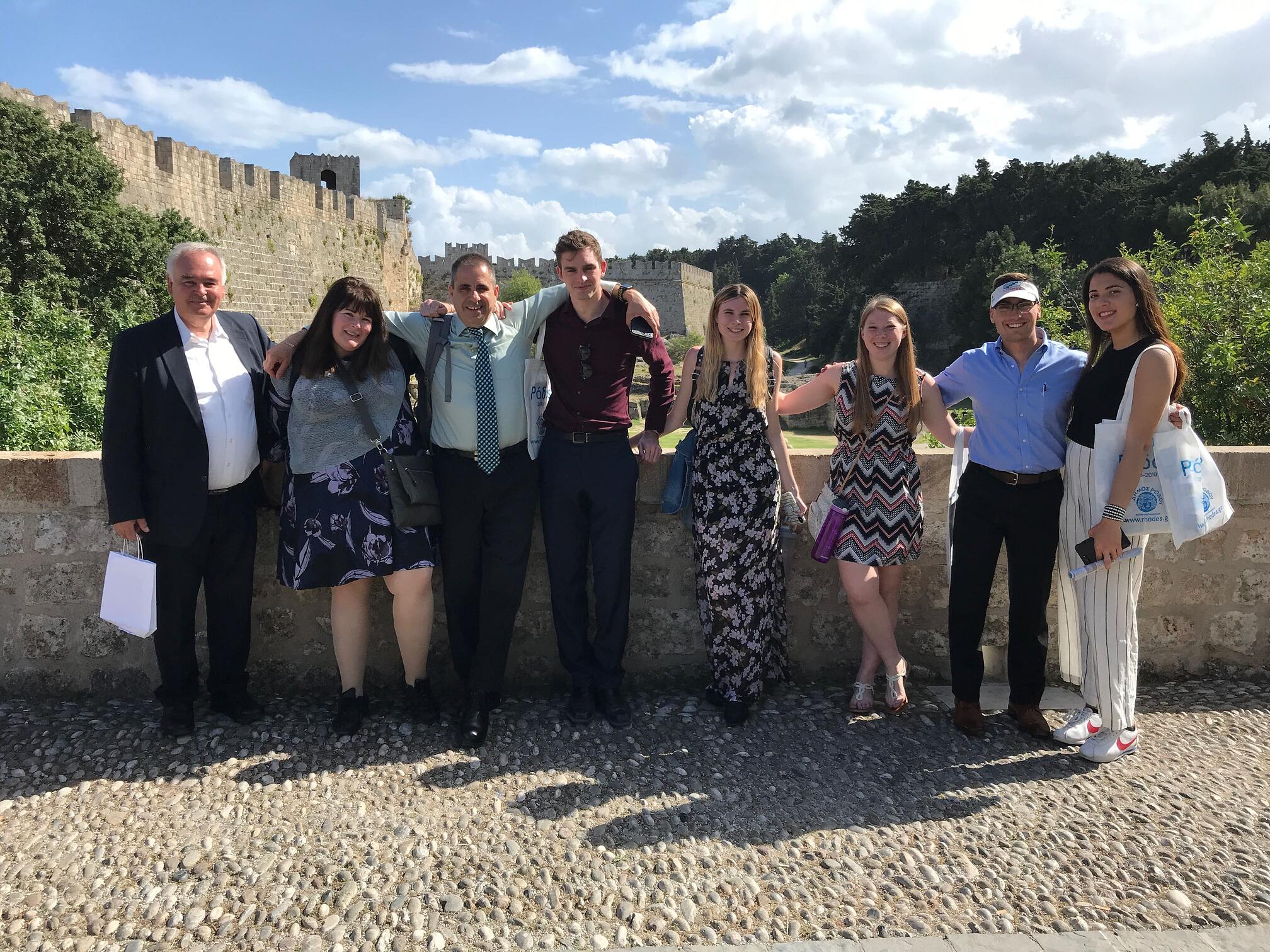
In between meetings, the class absorbed in-depth details and background about Greece’s culture, history and architecture from Ilias Tomazos, a dual citizen of the U.S. and Greece (born and raised in Rhodes), and an instructor of Modern Greek studies. His roots and expertise provided an insider’s perspective far beyond that of a typical tour.
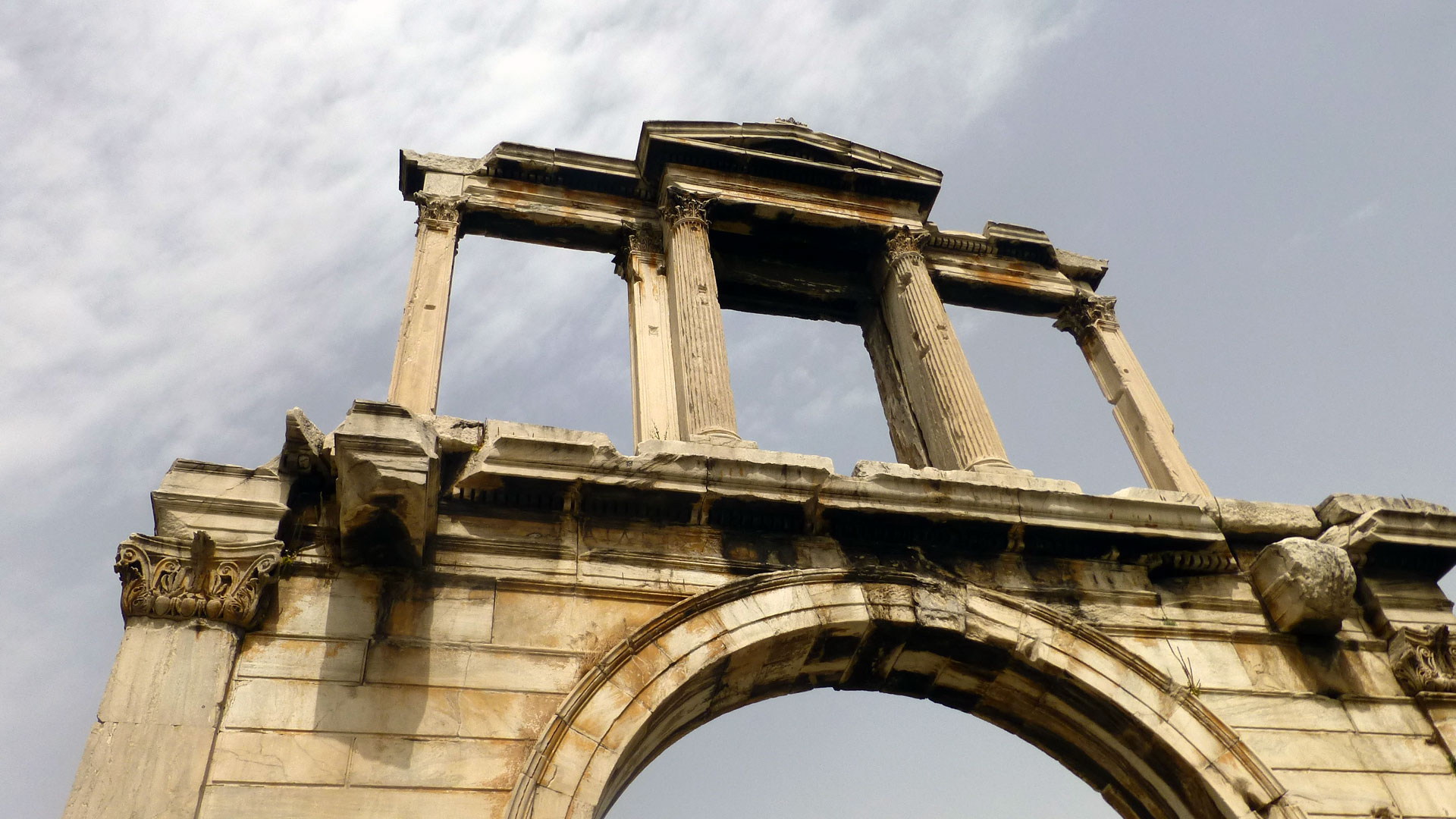
Janelle Charron ’20 and Tara Eaton ’19 agreed that experiencing hospitality in another country provides new perspectives. “One of the major focuses of the trip is how to be an expat, which is important for an international hotel management major … it’s important for us to learn the different cultures and aspects of the hotel industry in a different country,” said Charron. “What they do differently, how we can improve in the United States — it’s awesome to be able to learn something from them,” added Eaton.
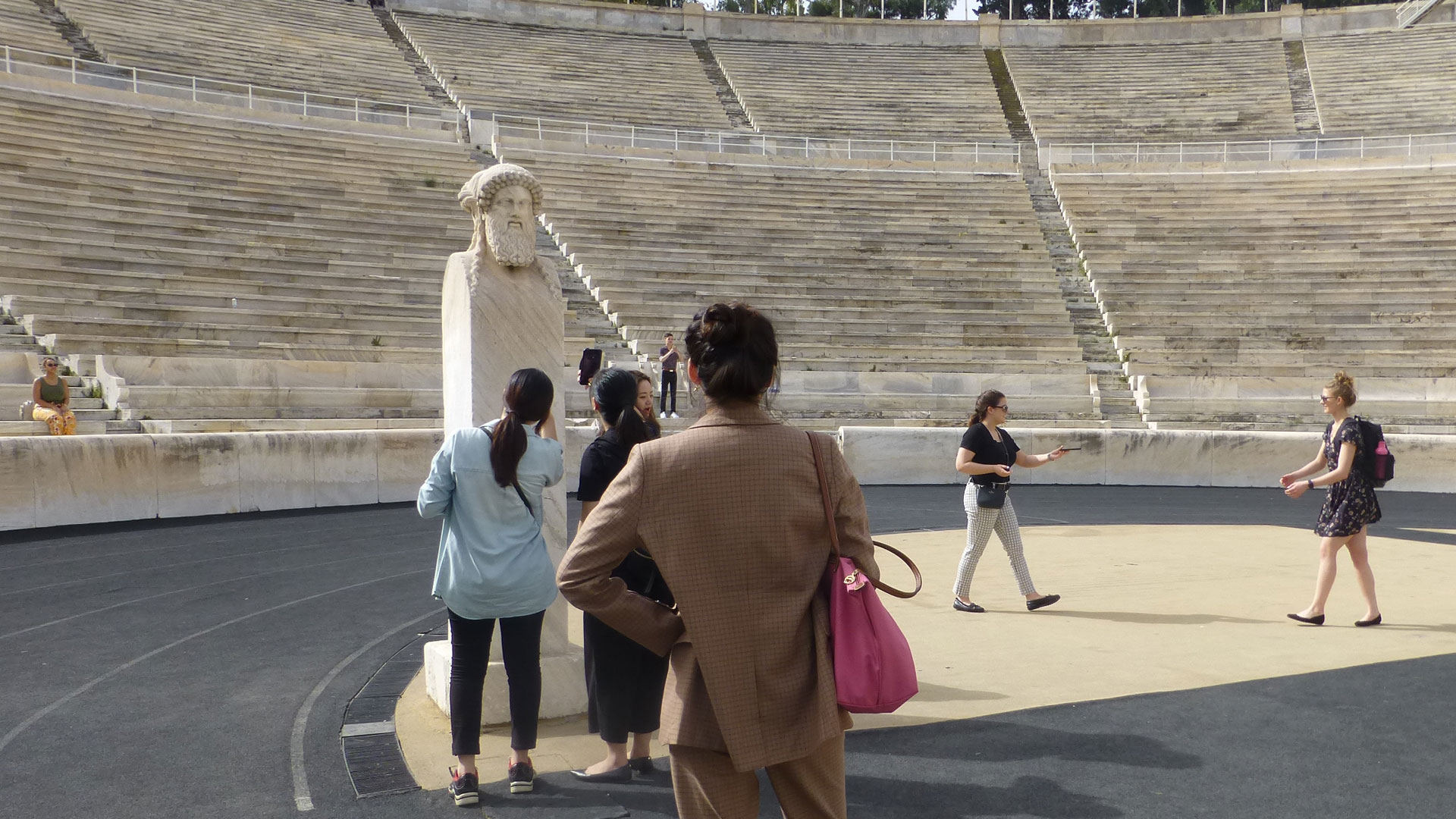
In Athens, the class visited several must-see sites. They toured the Acropolis and some of its highlights: the Parthenon, Temple of Olympian Zeus and Theater of Dionysus. The Panathenaic Stadium, where modern Olympic games began in 1896, was a spectacular site, as was the Changing of the Guard ceremony at the Tomb of the Unknown Soldier.
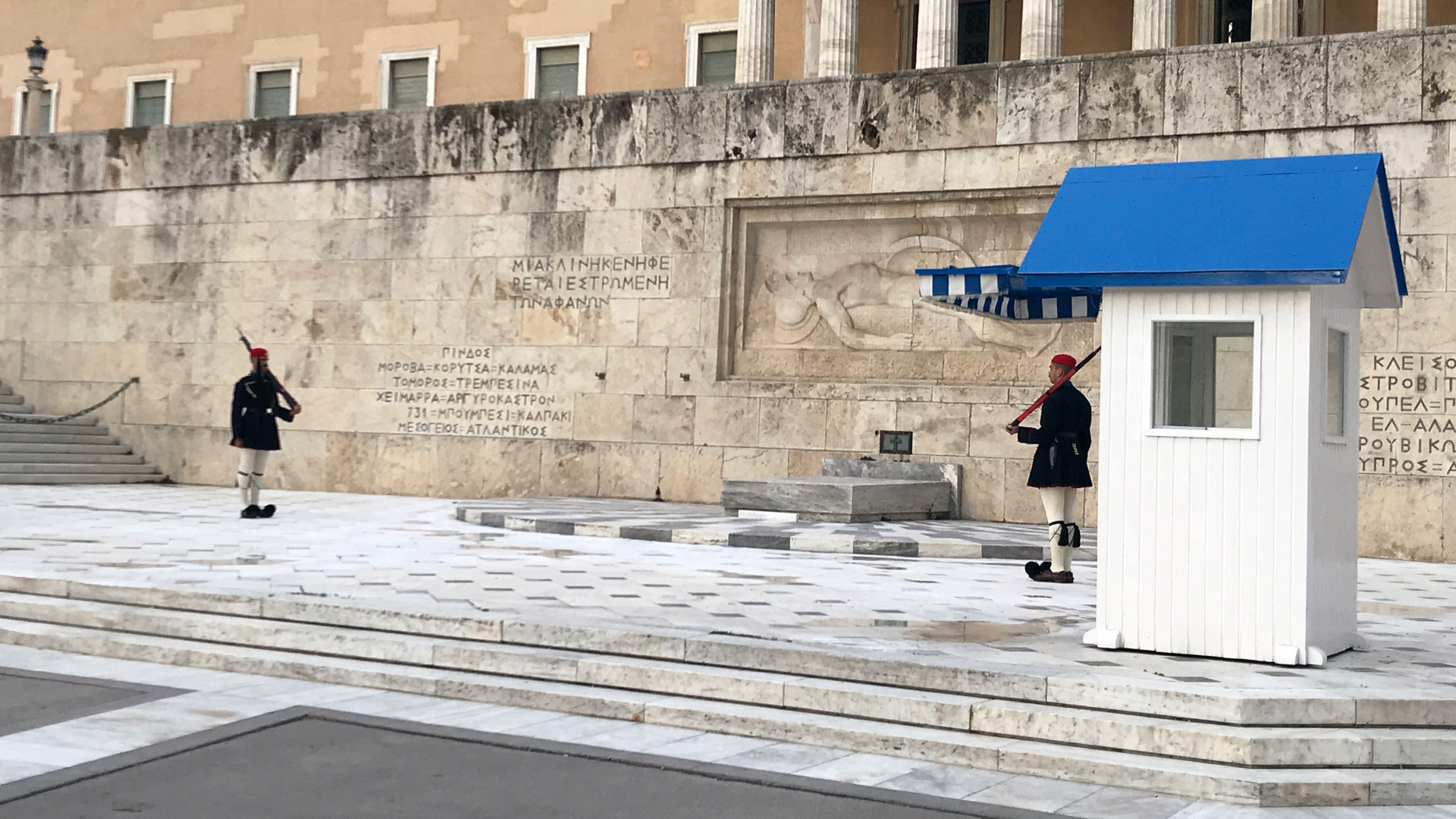
After 2 full days in Athens, the students headed to the island of Rhodes, the 4th largest Greek island, to explore the city of Rhodes and some of the island’s outlying areas. They roamed hand-made stone paths through the Medieval City of Rhodes (a UNESCO World Heritage Site), and visited the Archaeological Museum housed in the former hospital of the Knights of Rhodes, along with the harbor of Mandráki, believed to be the site of the former Colossus of Rhodes, one of the Seven Wonders of the Ancient World.
"It’s really awesome that JWU provides this opportunity to travel … they want you to experience the hotel industry and what life is like in other countries."
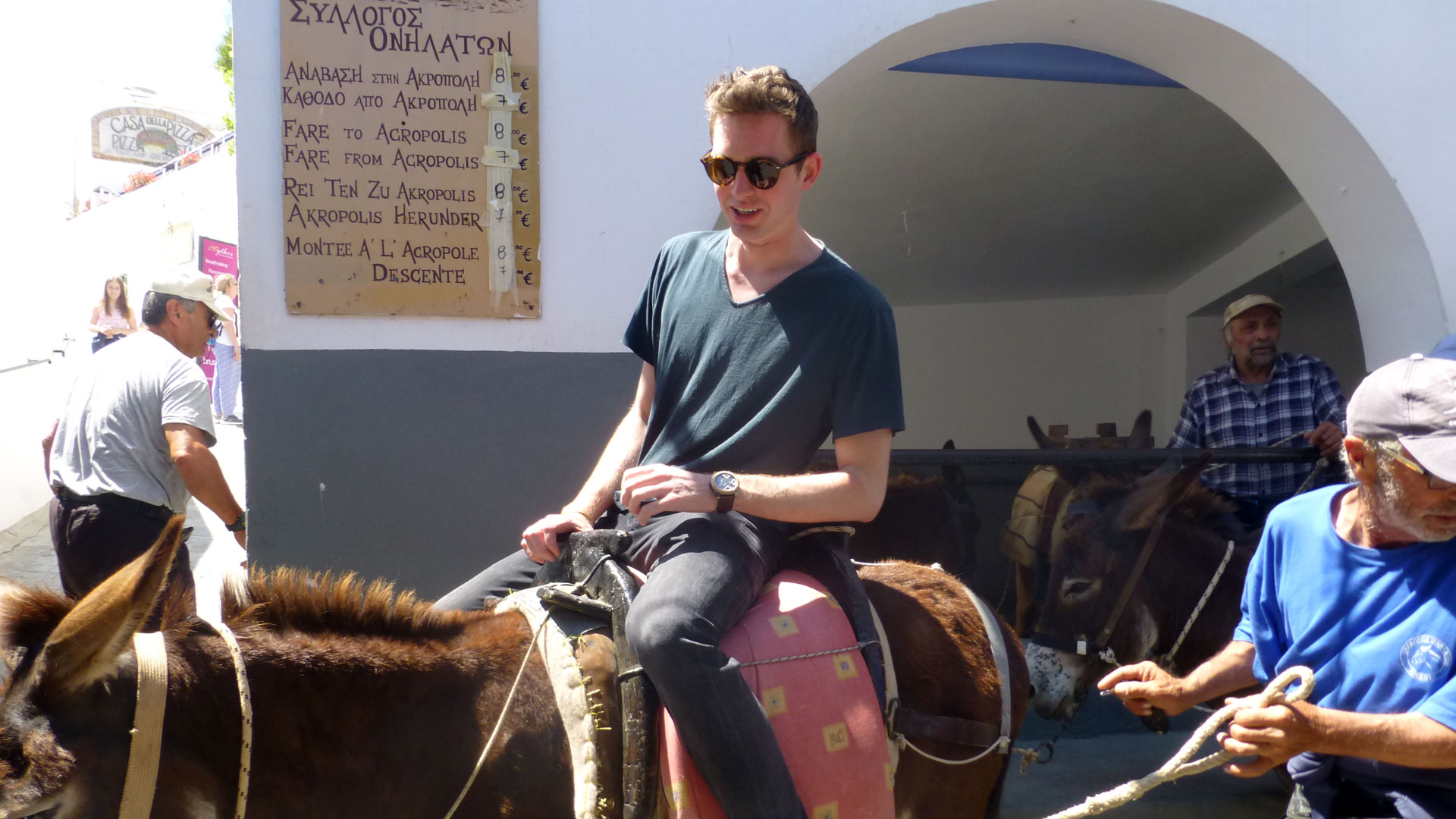
By the end of the week-long trip, the class was ready for a slower-paced last day, and their first stop was Lindos. A village nestled at the bottom of a steep, rocky hill, topped with its own Acropolis, Lindos is one of the top archaeological sites in Greece. While some of the students took a donkey ride up to the ruins, catching the dramatic views of whitewashed homes and the aqua blue Aegean Sea, others cooled off in the water and relaxed on a small sandy beach.
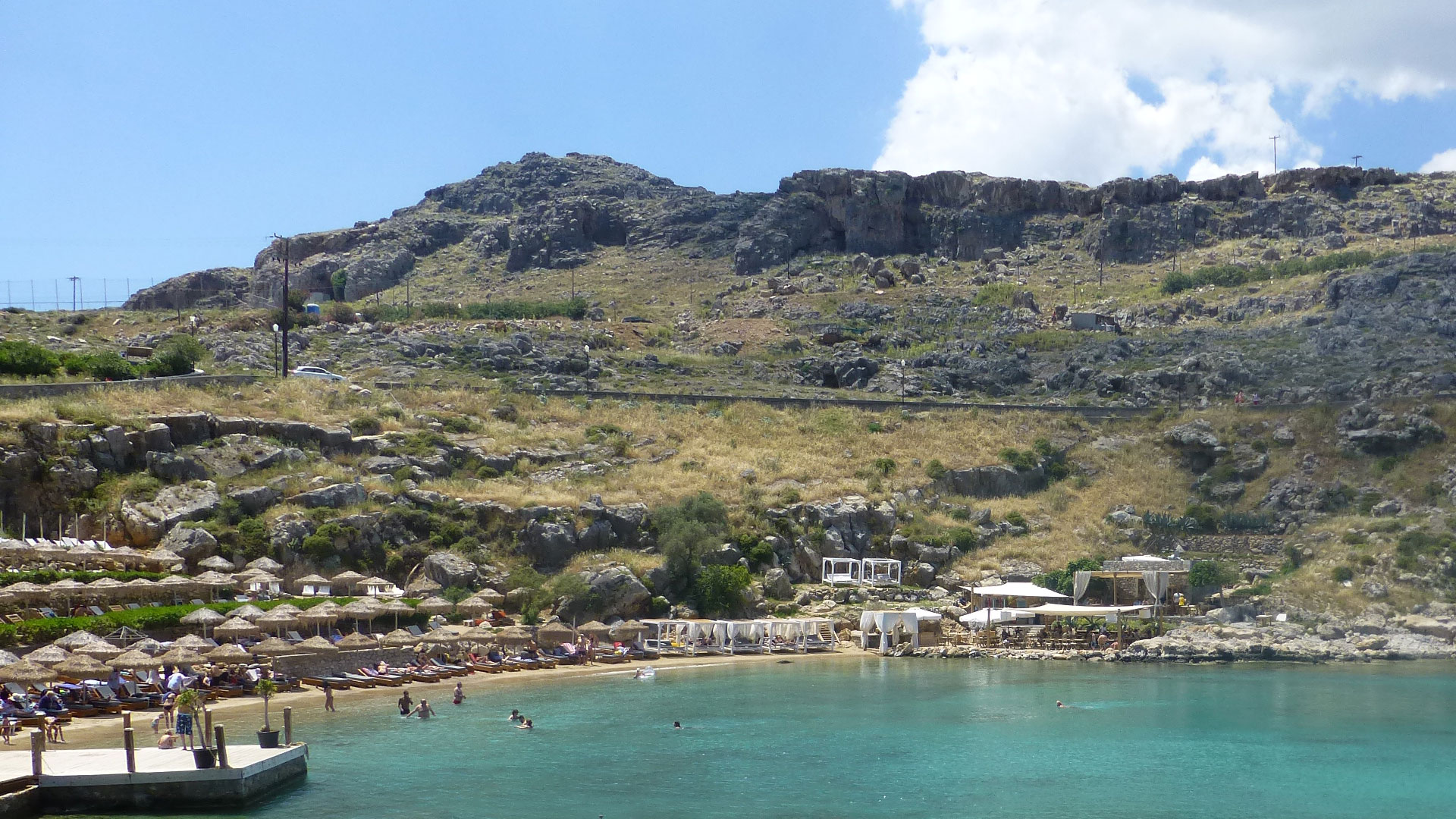
The next stop was Kallithea. Built by Italians in 1920 when they ruled Rhodes, the Kallithea Spa sits on the water’s edge. A walk through the herb- and spice-filled gardens, followed by a late lunch on the patio overlooking the beach, were perfect for some afternoon R and R.
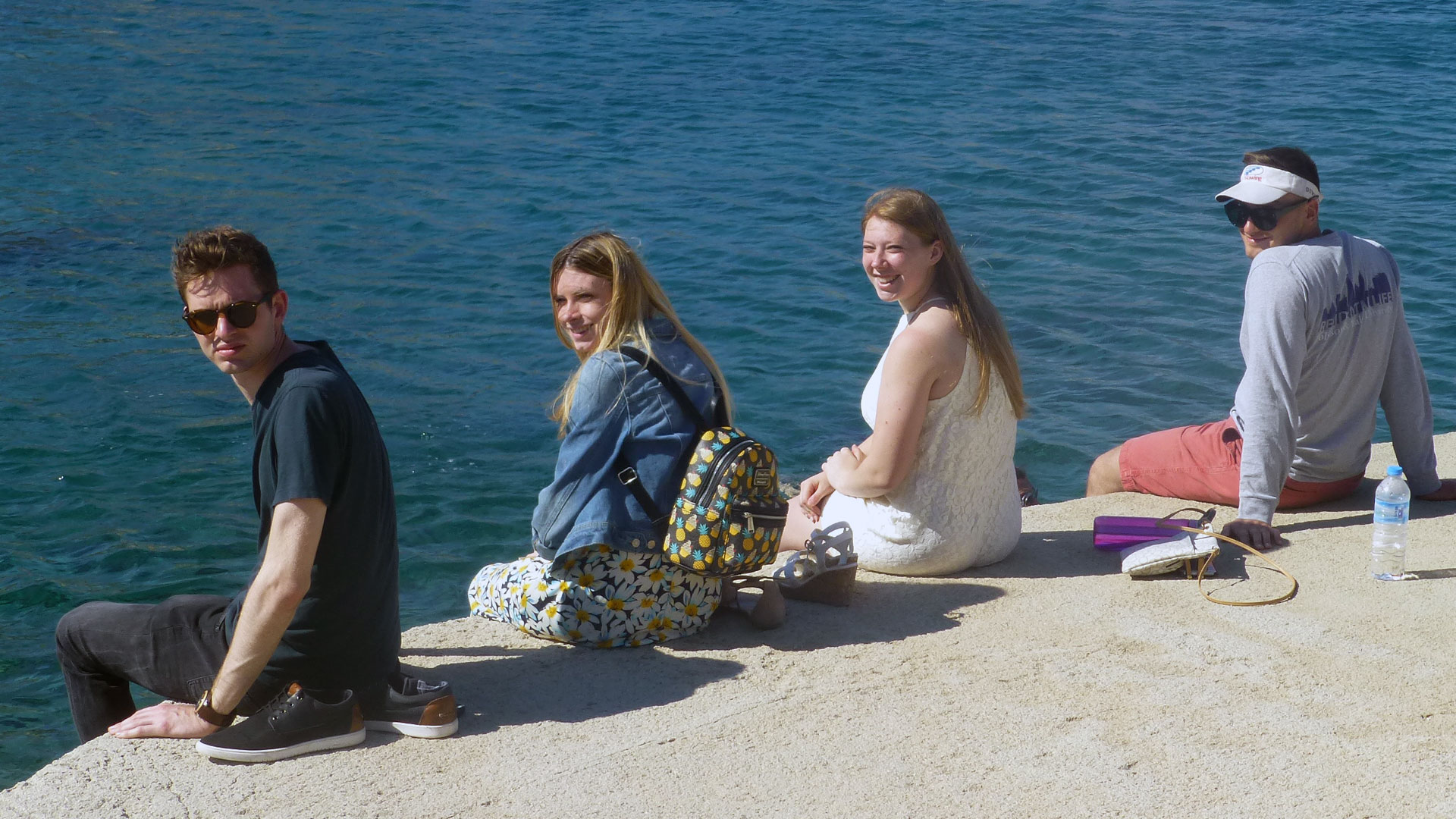
The last stop was a tour of the imposing Casino Ródos. Warren had been looking forward to this all week. “We learned not only about gambling and casino operations but also … the food and beverage, front office and hotel aspects. It provided a unique example of hospitality in a lot of different areas and was just a really cool experience."
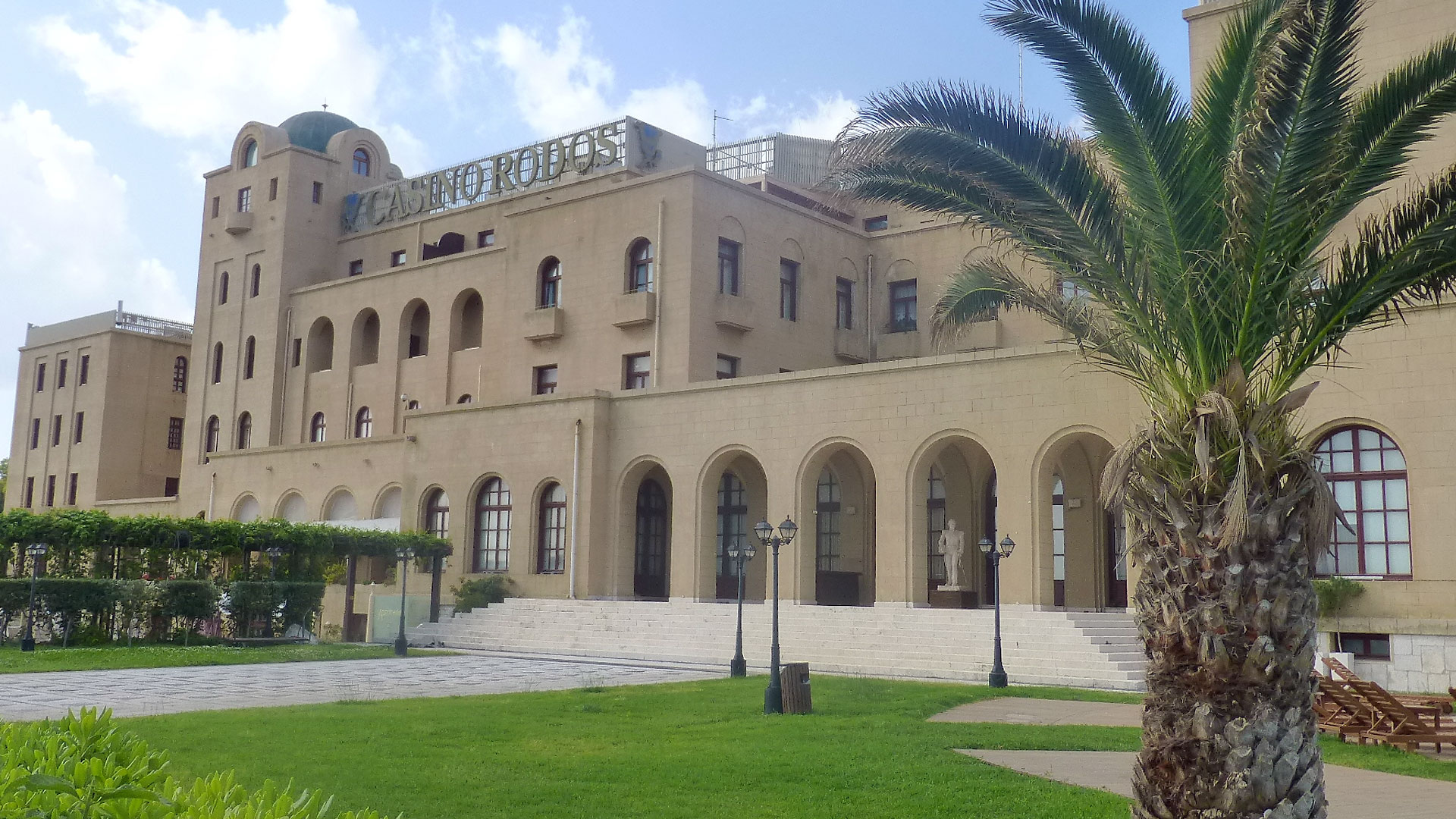
As a location for learning about international hotel and tourism, and expanding your outlook on the culture, customs and people of a foreign land, Greece presented a unique, stunning combination of experiences, ancient masterpieces, and learning from locals that would be hard to beat elsewhere.
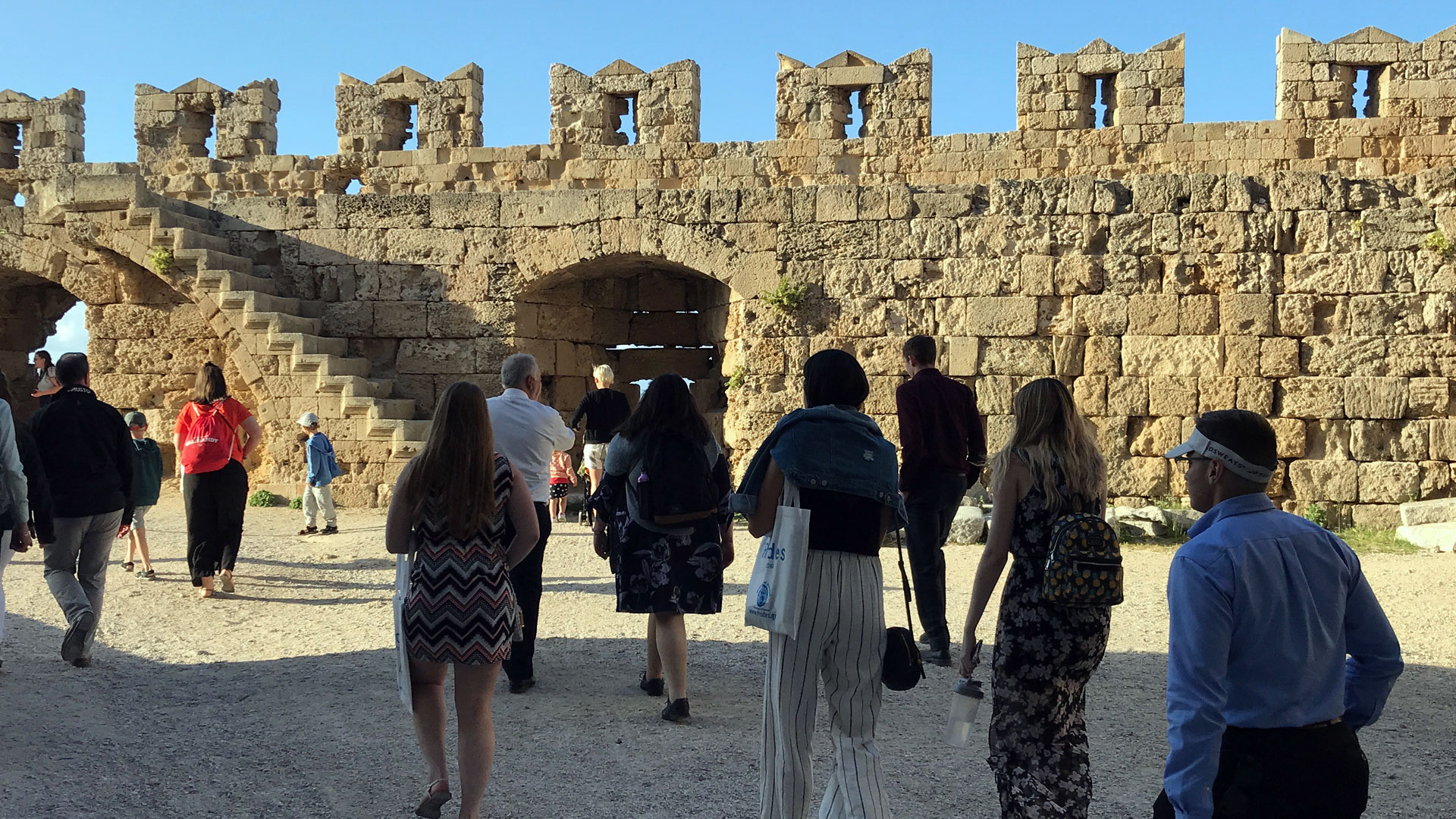
Eaton summed up the trip nicely. “I think it’s really awesome that JWU provides this opportunity to travel … JWU wants you to experience the hotel industry and what life is like in other countries.”
For these students, this Greek adventure was an education like no other.
